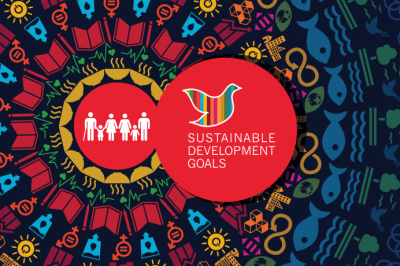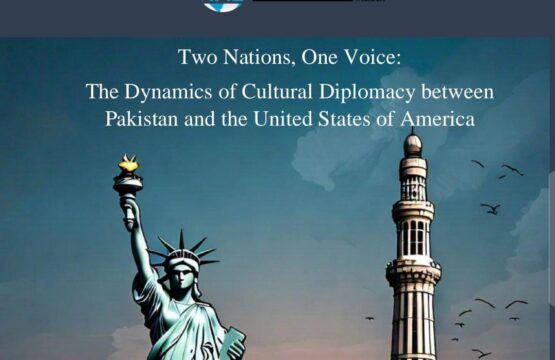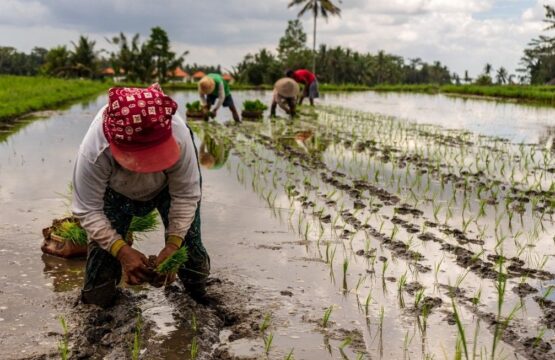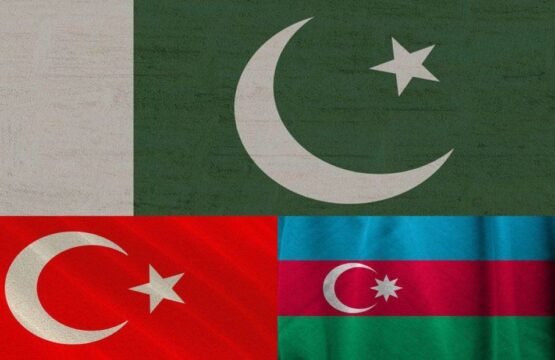The idea that having work should guarantee a life of dignity, free from poverty, frequently remains inaccessible in the bustling streets of Pakistan, where the daily grind is a way of life for millions. The stark reality that there is a desperate need for decent work reverberates throughout the country.
The International Labour Organization (ILO) defines decent employment as a comprehensive goal. A decent job entails a diverse approach that addresses opportunity, a fair wage, workplace security, social protection, equality, and inclusion. It is critical to highlight the pressing challenges of decent employment, women’s empowerment, and Pakistan’s Sustainable Development Goals (SDGs) on this World Day for Decent Employment.
In essence, decent employment encapsulates people’s objectives in their professional lives. It signifies the opportunity for productive labor that produces a fair wage. It ensures every worker’s employment security and social protection, improving personal growth and social integration opportunities. It symbolizes the ability of people to speak up, get involved, and make decisions that affect their lives. Above all, it argues for equal opportunity and treatment for all women and men, transcending gender prejudice.
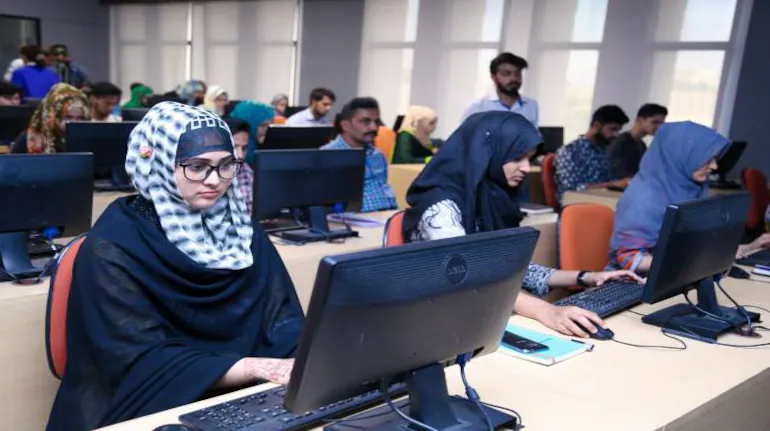
In Pakistan, finding respectable work is more than an aspiration; it’s a dire necessity. The statistics show a frightening reality. Recent figures show that a sizable share of Pakistan’s workforce works in the unorganized sector, frequently lacking social protection and job security. Due to this, millions of people are left helpless to escape poverty and subjected to economic shocks. Pakistan ranks 142 out of 146 countries in WEF’s global gender gap report. In Pakistan, where 84.8% of males are employed, there is a significant gender disparity in both employment and economic possibilities, with only 22.6% of women employed.
Even more alarming tendencies are shown when this issue is examined from a gender perspective. Pakistan struggles with gender imbalances in the workforce, just like many other nations. While women make up a sizable portion of the workforce, salary disparities and limited access to leadership roles frequently limit their participation. This prevents them from being empowered and feeds a cycle of economic inequity.
A major problem in Pakistan is discrimination against women in the workplace. Women frequently experience harassment, unequal compensation, and little career growth prospects. These discriminatory practices make it difficult for them to find suitable work.
Unemployment and underemployment are just two of the problems plaguing Pakistan’s economy. This makes it more challenging for both men and women to secure quality employment, but discrimination frequently places women at a greater disadvantage. Inadequate and unsafe means of transportation for women, especially those in rural regions, confront significant barriers while trying to reach the workplace. Because of this immobility, they may be less employable.
Pakistan rated 143rd in the sub-indicator of economic engagement and possibilities. The nation ranked 139th in terms of lawmakers, senior officials, and managers, 132nd in terms of professional and technical workers, and 140th in terms of labor force participation. It was placed 71st in terms of salary equality for similar employment. In 2023, Pakistan ranked 138th in terms of educational attainment.
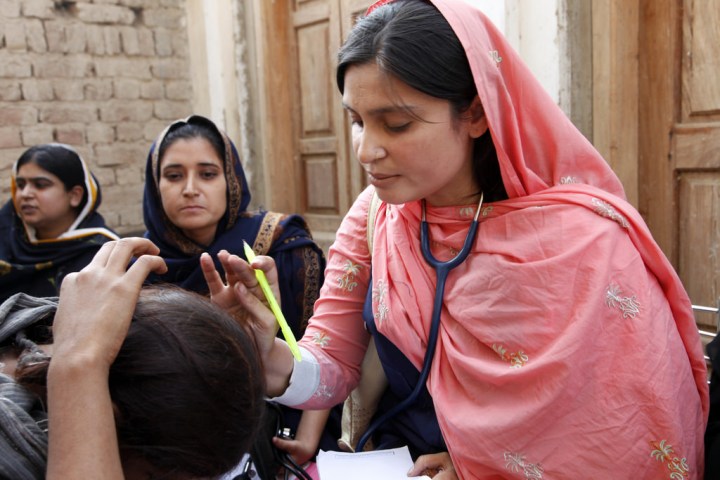
Many women in Pakistan do not have access to high-quality education because of financial and geographical constraints. Because of this, they are hampered in their ability to find jobs that pay well. In 2023, Pakistan ranked 138th in terms of educational attainment. The nation’s secondary and higher education enrollment rates are 132nd and 104th, respectively, while its literacy rate ranks 137th.
Traditional gender roles and cultural standards can limit women’s access to education and employment opportunities. Many women are encouraged to emphasize their duties as housewives and carers before pursuing careers.
Child marriage remains a concern in Pakistan, as it can lead to early birth and limit women’s possibilities for education and employment. Inadequate healthcare access, particularly for reproductive health, can limit women’s capacity to work. Problems with maternal health and a lack of family planning options can restrict women’s choices.
Lack of access to credit and financial resources makes it difficult for many women to launch or grow enterprises or engage in income-generating activities. According to the State Bank of Pakistan, only 29% of women in Pakistan, one of the lowest percentages in the world, have a bank account, which severely impedes the country’s economic development.
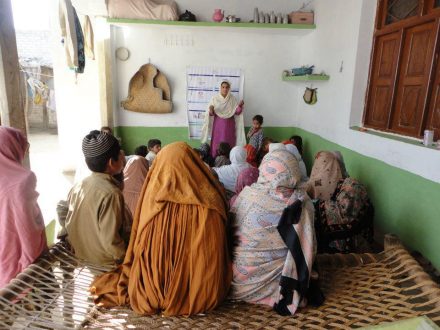
Although Pakistan has made strides in enacting legislation to protect the rights of women, putting those laws into practice and enforcing them remain obstacles. Protecting women at work requires both new legislation and stricter enforcement of existing regulations.
Also Read: New perspective on an ancient trade route through Silk Route Revisited
Despite these difficulties, there is hope in sight. The SDGs, endorsed by the UN in 2015, have become a guiding light for Pakistan’s journey toward sustainable development. The SDG’s Goal 8 specifically calls for “full and productive employment and decent work.” It’s not simply a target; it’s a strategy to deal with Pakistan’s numerous economic and social problems.
Pakistan is making achievements in fostering gender equality and fair work as it aligns itself with the SDGs. Initiatives are underway to empower women economically by giving them the resources and opportunity to break free from poverty. The workplace is gradually becoming more equal due to gender-responsive rules and practices.
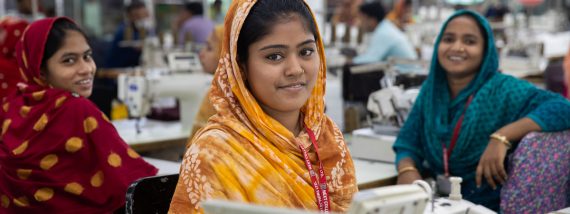
Furthermore, Pakistan’s dedication to decent employment and the SDGs is not a solitary activity. These initiatives are being strengthened by international partnerships, including the ILO’s assistance. The ILO’s Decent Work Agenda, which emphasizes social protection, social dialogue, workplace rights, and job creation, aligns with Pakistan’s inclusive economic growth and poverty eradication goals.
Gender Reform Action Programmes, Benazir Income Support Programme (BISP), National Rural Support Programme (NRSP), Pakistan Bait-ul-Maal, First Women Development Bank, and National Commission on the Status of Women are all part of the National Plan of Action. In response to the 18th Amendment’s decentralization provisions, provincial governments have established departments dedicated to women’s development. These divisions take steps to build working women’s hostels, daycare facilities, women’s crisis centers, shelter homes, etc. The State Bank of Pakistan’s “Banking on Equality Policy” also seeks to provide women-centric financial goods and services by 2030 and 20 million active women-owned accounts.
In Pakistan, achieving the SDGs, women’s empowerment, and decent work is not just a policy question but also morally required. It becomes clear that decent work is not a luxury but a fundamental human right. It spurs transformation, women’s empowerment, and accomplishing the Sustainable Development Goals. The data depicts difficulties while also showing the possibility of progress. The road ahead may be difficult, but it sparkles with the vision of a society where every worker, regardless of gender or background, can live a dignified and poverty-free life. In concert with the rest of the world, Pakistan must take the necessary steps to ensure a better, more prosperous future for all people.
A student of International Relations interested in National Security strategies, with a good focus on Geo-Politics, Foreign Policy, and Public & Cultural Diplomacy.

